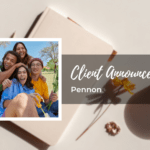Schultz & Williams attended the AFP Funders Forum: A Behind the Curtain Conversation with the Region’s Do-Gooders in Philadelphia. The panelists included representatives from The Grace S. and W. Linton Nelson Foundation, The Philadelphia Foundation, TD Charitable Foundation and The Barra Foundation. The casual, constructive conversation centered on writing stronger grant proposals.
Here are five key takeaways from that discussion:
- Know your funder. This may seem obvious but it cannot be overstated. Just as all nonprofits are different from one another so are all foundations. They have different requirements and expectations for engagement, so it is important that you do your research. Aside from deadlines and guidelines, be sure you know 1) what types of projects and organizations that foundation has supported in the past, 2) the size of the grants the foundation typically makes and 3) who your contact person will be at the foundation.
- Consider chronicling. Outside of typical storytelling and metrics, chronicling is a creative way to document progress and show impact in a grant proposal. We know the power in the “story of one”: Document the journey and accomplishments of one person who was helped by your organization.
- Put yourself in the funder’s shoes. When writing a grant proposal, keep in mind that this may be the first time the foundation is hearing about your organization, program or project. It is all too easy to leave out key information because you are so familiar with your organization’s mission and activities. Consider letting an outsider read your proposal for objective feedback, and remember to thoroughly explain any aspects that could be open to interpretation.
- Be transparent. Foundations want to partner with open and honest organizations. Don’t be afraid to talk about challenges that your organization faced in launching a new program. Instead, emphasize how you overcame those challenges.
- Always follow up. Even if your proposal is rejected, many foundations will gladly have a follow-up conversation with you. This quick conversation can improve future proposals and build your relationship with that foundation, which may be able to suggest other funding opportunities to you.




